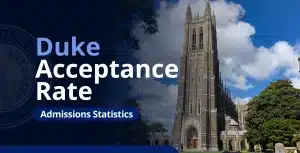Think you need a trust fund to afford college? Think again. Michigan is home to some fantastic colleges that are as easy on your wallet as they are on your GPA. The cheapest colleges in Michigan offer great education at prices that won’t leave you eating ramen until your 40s. Let’s dig into the details of these budget-friendly gems.
- Saginaw Valley State University (SVSU)
- Eastern Michigan University (EMU)
- Wayne State University (WSU)
- Grand Valley State University (GVSU)
- Oakland University
- Lansing Community College (LCC)
- The Average Cost of College in Michigan
- Smart Ways to Find Scholarships and Stretch Your College Budget
- Frequently Asked Questions
- Takeaways
1. Saginaw Valley State University (SVSU)
Location: University Center, Michigan
Tuition: Around $12,150 per year (in-state)
Acceptance rate: 73%
As one of the cheapest colleges in Michigan, SVSU makes quality education affordable without sacrificing value. With a 73% acceptance rate, it’s also one of the more accessible schools for students who might be nervous about their grades.
At around $12,150 per year for in-state students, SVSU already keeps things budget-friendly. On top of that, the scholarships at SVSU are generous, which means you might just have enough cash left over for a fun weekend out or that new textbook you’ve been procrastinating on buying.
The Cardinal Scholarship can hook you up with up to $4,000 if you’ve been hitting the books hard, and the Valley Housing Scholarship can knock down your dorm costs. Not a straight-A student? No worries. SVSU also offers plenty of need-based grants and work-study gigs that let you earn while you learn.
Basically, SVSU proves that being one of the cheapest colleges in Michigan doesn’t mean cutting corners. They’ve got your back, so you can focus on your classes (and maybe splurge on that extra-large pizza during finals week).
2. Eastern Michigan University (EMU)
Location: Ypsilanti, Michigan
Tuition: Around $7,960 per year
Acceptance rate: 81%
Eastern Michigan University is like the friend who always has a coupon: they make everything feel affordable. Most students admitted here have a GPA of about 3.28, which shows that consistency matters more than being a genius.
SAT scores typically land around 1100, and ACT scores of about 22. Prefer to skip the tests altogether? EMU is test-optional, so you can keep your focus on that killer essay or glowing recommendation letter instead.
As one of the cheapest colleges in Michigan, EMU makes it possible to earn a quality education without drowning in debt. At around $7,960 per year, EMU is a steal compared to other universities in the region. The block tuition rate for up to 16 credits is $7,960, with an additional $668 charged for every credit hour beyond that.
EMU also offers a range of scholarships, like the Emerald Scholarship, which can knock thousands off your bill based on your high school GPA alone. Plus, their financial aid office is known for going the extra mile by helping students stack grants, work-study programs, and loans in a way that minimizes debt.
Their standout programs include education, business, and engineering, and the campus has a welcoming vibe that feels like home (but with way more coffee shops). It’s the kind of place where you can buckle down, build your future, and maybe even join a quirky club or two.
3. Wayne State University (WSU)
Location: Detroit, Michigan
Tuition: Around $6,805.86 per year (in-state)
Acceptance rate: 82%
Wayne State University gives you big-city vibes without the big-city price tag. As one of the cheapest colleges in Michigan, WSU keeps tuition at an affordable $6,805.86 per year for in-state students. WSU makes living and studying in the heart of Detroit surprisingly affordable.
WSU’s tuition is a flat rate for undergraduate students registered for 12 to 18 credits, which means you can load up your schedule without worrying about extra costs. If you’re taking more credits, the cost per credit depends on the college you’ve enrolled in, which ranges between $520 and $580.
And if that sounds good, wait until you hear about their scholarships. Wayne State is practically giving out money with options like the Heart of Detroit Tuition Pledge, which offers free tuition to eligible Detroit residents.
For non-Detroiters, they’ve got the Warrior Strong Scholarship, which awards significant tuition discounts based on your academic performance. And don’t forget about their work-study programs that allow you to earn while you learn.
Combine these with their flexible payment plans, and it’s no surprise why WSU stands out as one of the cheapest colleges in Michigan for students seeking quality education without breaking the bank.
Located smack-dab in Detroit, Wayne State offers more than just academics. You’ll be surrounded by museums, concerts, and enough food trucks to keep your Instagram feed busy. The university excels in programs like law, business, and healthcare, which makes it a smart choice for students aiming to jump into competitive industries.
4. Grand Valley State University (GVSU)
Location: Allendale, Michigan
Tuition: Around $15,140 per year (in-state)
Acceptance rate: 95%
Grand Valley State University is where affordability meets the full college experience. As for test scores, students usually have GPAs that range from 3.3 to 3.9, with SAT scores between 1010 and 1230 and ACT scores from 21 to 27. And yep, it’s another test-optional school, so you can focus on showing off your other strengths instead of stressing over test scores.
GVSU keeps tuition in check at around $15,140 per year for in-state students, which proves you don’t need to rob a bank to enjoy the full college experience. As one of the cheapest colleges in Michigan, it rolls out the red carpet with scholarship options like the Laker Scholarship, which can hand you up to $4,000 a year just for being a rockstar student.
Not quite in the scholarship range? Don’t fret just yet. The financial aid office is there to hook you up with grants, work-study gigs, and payment plans that won’t make your wallet cry. They’ll work with you to find every possible way to keep your education affordable, so you can focus on studying (and maybe a little Netflix).
GVSU’s Allendale campus is massive, with everything from scenic walking trails to top-notch labs. The school shines in fields like health sciences and engineering, but its liberal arts programs are nothing to scoff at either.
If you’re into clubs, sports, or just hanging out on a gorgeous campus, GVSU has all that without draining your bank account. It’s the perfect example of why the cheapest colleges in Michigan don’t compromise on quality or experience.
5. Oakland University
Location: Rochester Hills, Michigan
Tuition: About $15,863 per year (in-state)
Acceptance rate: 88%
Located in the quiet suburbs, Oakland University is ideal for students who prefer a calm atmosphere to focus on their studies. The average GPA for the Class of 2028 is 3.48, with SAT scores around 1047. Like most of the schools on this list, Oakland is test-optional, so you can showcase your other talents if standardized tests aren’t your thing.
Oakland stands out with strong programs in engineering and business, along with partnerships with major Detroit-area companies. The campus has a mix of modern buildings and green spaces, making it a relaxing place to hit the books.
As one of the cheapest colleges in Michigan, Oakland offers a perfect combination of affordability and quality. Oakland University keeps tuition in check at about $15,863 per year for in-state students, but the real magic happens when you start stacking scholarships.
The OU Excellence Scholarship can knock up to $12,000 off your yearly bill if you’ve been hitting the books hard in high school. Not quite at that level? No worries. The Talented Scholar Award is there to celebrate your unique skills, and need-based grants can help if your wallet feels a little too light.
More than half of the students at OU receive financial aid to help cover some or all of their tuition. In fact, the university hands out over $150 million in financial aid annually, with the average award exceeding $7,000 per student per year.
6. Lansing Community College (LCC)
Location: Lansing, Michigan
Tuition: $120 per billing hour (in-district)
Acceptance rate: Open admission
LCC is super affordable and earns its spot as one of the cheapest colleges in Michigan. They don’t do the whole “one flat rate” thing. Instead, tuition is based on billing hours, which is a fancy way of saying you only pay for the time you’re actually in class, a lab, or doing hands-on work.
If you’re an in-district resident, that’s just $120 per billing hour. Yep, you read that right. Out-of-district Michiganders pay $240 per hour, out-of-state students pay $360, and international students top out at $420. Still cheaper than a semester’s worth of lattes at some universities.
LCC doesn’t just stop at low tuition. They sprinkle in scholarships like the Lansing Promise Scholarship, which covers costs for local high school grads. Not from Lansing? No problem. There’s a buffet of merit-based and need-based scholarships from the LCC Foundation.
With tuition this low, plenty of financial aid, and credits that transfer seamlessly to Michigan’s big-name universities, LCC is proof that you don’t have to break the bank to build your future. Save money, learn a lot, and still have enough left over for Taco Tuesday. What’s not to love?
The Average Cost of College in Michigan
The cost of college in Michigan is a mixed bag. Public 4-year institutions average $26,352 per year for in-state students, which is 17.7% higher than the national average. Tuition and fees alone are $14,718 (55.85% of the total), and room and board tack on another $11,634, up 2.78% year-over-year.
Out-of-state students? You’re looking at $41,324: nearly double what locals pay.
Private colleges cost an average of $44,800 annually, with $33,385 going to tuition and fees and $11,415 for room and board. While that’s 9.78% cheaper than the national average for private schools, tuition has still risen by over 3% in 2023.
Community colleges, however, are the real budget-friendly stars. Averaging $3,963 annually for in-state tuition, they often rival the cheapest colleges in Michigan. Out-of-state community college students pay $7,493, about 62% more, but it’s still a better deal compared to many 4-year institutions.
Of course, there are outliers. Jackson College leads the 2-year pack at $16,470, while Albion College tops private schools at a whopping $63,155. The University of Michigan, at $27,554 for in-state students, is the priciest public university.
Bottom line? Michigan has options for every budget, but tuition hikes are real. Scholarships and financial aid can help soften the blow, so plan smart and shop around!
Cost of living in Michigan
Living in Michigan doesn’t have to feel like a financial juggling act. It’s totally doable if you know what to expect. The average monthly cost is about $1,939, and while it’s not exactly pocket change, it’s manageable, especially if you’re smart about budgeting. Here’s what the breakdown looks like:
- Rent & utilities. Renting in the city center will set you back about $1,286 for a one-bedroom apartment, but head outside the hustle, and you can snag one for $925. Utilities for one person average $71.60 per month, which isn’t too bad considering you’ll stay warm in those chilly Michigan winters.
- Internet. Staying connected is surprisingly cheap: just $58.70 for a solid 50 Mbps unlimited plan. Perfect for streaming, studying, or doom-scrolling social media.
- Transportation. Public transport is affordable, with a local ticket costing $2.79 or $39.50 for a monthly pass. Gas is a steal at $0.91 per liter, but if you prefer cabs, a short ride (about 5 miles) will set you back around $20.70.
If you’re hitting up the cheapest colleges in Michigan, like Lansing Community College or Wayne State University, you’ll find that low tuition paired with reasonable living costs makes for a stress-free student life. Budget smart, and you’ll even have enough left over for a weekend road trip to one of Michigan’s many lakes.
Smart Ways to Find Scholarships and Stretch Your College Budget
Scholarships are the ultimate hack for making college affordable. Even at the cheapest colleges in Michigan, scholarships and financial aid can make a huge difference by covering tuition, books, or even housing costs. Finding the right ones takes a little strategy, but with the right approach, you can maximize your savings and minimize your stress. Here’s how:
1. Start early and stay organized.
Start as early as junior year, and keep track of deadlines using a spreadsheet or apps like Scholly. Many scholarships, like the Coca-Cola Scholars Program or the Gates Scholarship, have deadlines in the fall, so staying ahead of the curve can be your golden ticket.
2. Cast a wide net.
National scholarships like the Jack Kent Cooke Foundation Scholarship get a lot of hype, but don’t forget about local gems. Your community foundation, local rotary clubs, or even the diner you frequent might offer smaller scholarships with less competition. Into knitting? There’s literally a scholarship for that.
3. Customize your applications.
Skip the one-size-fits-all essay approach. Scholarship committees can sniff out generic applications a mile away. Instead, tailor your pitch. For instance, if you’re applying for the Elks Most Valuable Student Scholarship, highlight your community service hours and leadership roles. It’s all about connecting the dots between what they want and what you offer.
4. Use scholarship search engines.
Websites like Fastweb and Scholarships.com are goldmines for finding scholarships you didn’t know existed. Here’s a pro tip: filter for smaller awards or niche scholarships, like the Chick-fil-A Leadership Scholarship, to boost your odds of snagging one.
5. Don’t overlook smaller scholarships.
A $500 scholarship might not sound like much, but stack a few of those, and suddenly you’re covering your textbooks, supplies, or meal plan. Plus, smaller scholarships like the John and Abigail Adams Scholarship often have fewer applicants so your odds of winning skyrocket.
6. Leverage your school’s financial aid office.
More than just doing paperwork, your college’s financial aid office is your scholarship BFF. Schools like Michigan State University offer specialized scholarships for every department, from engineering to theater. Stop by, ask questions, and let them guide you to free money.
7. Stay on top of renewal requirements.
Some scholarships, like the National Merit Scholarship, require you to maintain a certain GPA or complete annual applications. Keep a checklist to make sure you stay eligible year after year. Trust me, losing a scholarship because of a missed deadline stings.
8. Budget like a pro.
Congratulations—you got the scholarship! Now, make it last. Prioritize essentials like tuition and fees, but don’t forget to stretch your money wisely. Use tools like Mint or You Need a Budget (YNAB) to track your spending, and avoid splurging on non-essentials. That $1,000 textbook refund? Maybe save it for next semester instead of a new gaming console.
By following these tips, you’ll be better equipped to snag the best scholarships and make the most of every dollar, all while keeping your sanity intact. College might be expensive, but with the right moves, it doesn’t have to be a financial nightmare. Game on!
Frequently Asked Questions
1. What are the cheapest colleges in Michigan for in-state students?
The cheapest colleges in Michigan for in-state students include Saginaw Valley State University (around $12,150 per year), Wayne State University (approximately $6,805.86 per year), and Lansing Community College ($120 per billing hour for in-district residents). These schools offer affordable tuition rates along with scholarships, grants, and work-study programs to help reduce costs further.
2. How do I find the most affordable colleges in Michigan with great programs?
To find the most affordable colleges in Michigan, start by comparing tuition rates and financial aid options. Schools like Eastern Michigan University, with a block tuition rate of $7,960, and Grand Valley State University, at $15,140 per year, offer excellent programs in education, engineering, and health sciences. Don’t forget to check for scholarships and local community colleges for even more savings.
3. What is the average cost of college in Michigan?
The average cost of college in Michigan for public 4-year institutions is $26,352 per year for in-state students, including tuition, fees, and room and board. Private colleges cost more, averaging $44,800 annually, while community colleges remain the most affordable, with in-state tuition averaging $3,963 per year. Out-of-state students can expect significantly higher costs across the board.
4. Are the cheapest universities in Michigan also test-optional?
Many of the cheapest universities in Michigan are test-optional, including Saginaw Valley State University, Eastern Michigan University, and Grand Valley State University. This means you can apply without submitting SAT or ACT scores, and focus instead on your GPA, extracurriculars, and essays.
5. Can scholarships help lower the cost of the cheapest colleges in Michigan?
Absolutely! Scholarships can significantly reduce costs at even the cheapest colleges in Michigan. For example, Wayne State University offers the Heart of Detroit Tuition Pledge for eligible residents, and Saginaw Valley State University provides the Cardinal Scholarship, which awards up to $4,000. Combine these with grants and financial aid for maximum savings.
Takeaways
Steering through college costs in Michigan doesn’t have to be a headache. Here’s a cheat sheet to help you choose from the cheapest colleges in Michigan while saving as much as possible:
- Schools like Saginaw Valley State University, Wayne State University, and Lansing Community College prove that low tuition doesn’t mean cutting corners. You’ll get a quality education without pinching pennies for the next decade.
- Scholarships are your best friend. Even at the cheapest colleges in Michigan, scholarships like Wayne State’s Heart of Detroit Tuition Pledge or EMU’s Emerald Scholarship can take a serious bite out of your tuition bill. Don’t sleep on those local or niche scholarships either—they add up!
- Community colleges are the ultimate budget hack. Lansing Community College, with its $120 per billing hour tuition, is perfect for those who want to save big before transferring to a 4-year university.
- Michigan isn’t cheap, but you can work around it. With public 4-year schools averaging $26,352 a year, knowing how to stack financial aid and scholarships is essential. Plan smart, shop around, and make those tuition dollars stretch.
- Feeling overwhelmed? You don’t have to do it alone. From finding scholarships to picking the perfect school, a college admissions consultant can offer expert advice tailored to your own goals.











































